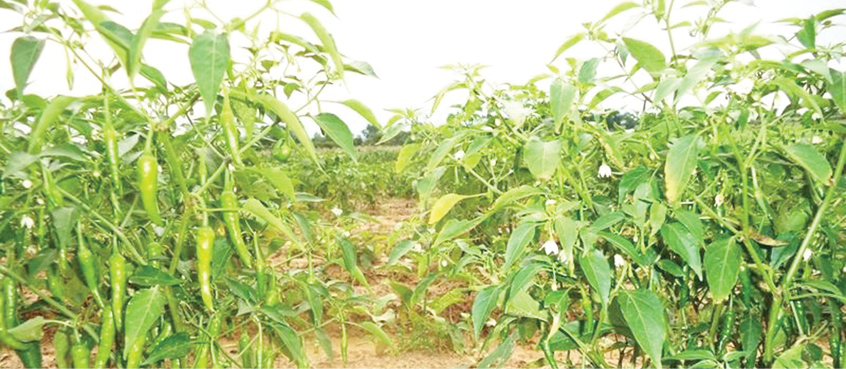For many okra farmers, this year’s production was a wasteful investment as many of their farms were ravaged by disease.
Because of its high nutritional and economic worth, okra is a widely grown crop in Nigeria. It provides varying amounts of nutrients, and is grown in the nation on both big and small scale, generating income for the farmers.
Daily Trust visited some farms in villages at the outskirts of Doma in Nasarawa State and saw destruction wreaked on the crop by the disease on a large scale.
Many farmers who spoke with Daily Trust said this is the first time they are witnessing something of this nature and so do not understand what exactly is happening.
- At caucus meeting, Tinubu charges APC leaders on financial discipline
- NACA wants states to sponsor HIV response activities
“Everybody who planted okra this year witnessed the same thing,” a farmer, Mainoma Yohana, told this reporter while trying to harvest the vegetable, lamenting that they have no idea where the crop disease came from.
The situation is the same in some villages in Lafia, the state capital, where residents confirmed the outbreak of the okra viral disease. Reports from other areas of some neighbouring states also suggest widespread incidents of okra disease problem.
“I used to harvest plenty okra between June and July every year. But this year, everything just changed. The harvest is so low because this disease just destroyed everything as you can see,” a farmer, Egube Kpowodu, said.
He said the income fell far below what he expected and that it has put him even in a more difficult situation because he invested so much time in it as against other crops this season.
Many farmers in the area usually plant okra and other vegetables at the early onset of the rain to generate income that will sustain them before the harvest of main crops like yam, maize, and other grains.
The incomes help families that have run out of food with the needed resources to buy food until the main crops are harvested.
In many farms seen by the reporter, the vegetable developed yellow spots and leaf curl, which destroys about 70 per cent of the crop on the farm.
Three weeks ago, the National Horticultural Research Institute (NIHORT), Ibadan released a statement acknowledging that a virus disease that is affecting okra plants across Nigeria had been identified by researchers at the institute
It said in the statement that “Reports are being received from farmers across Nigeria concerning the new and uncommon virus-like symptoms on okra farms leading to rapid diseases outbreak resulting in more than 70% loss of plants in certain situations.
“Observation by multidisciplinary team from NIHORT on okra farms revealed an unusual symptom in okra that consists of leaf curl associated with enations or outgrowths which were distinct from the usual leaf and/or vein yellowing symptoms known with virus-infected okra plants. Also, high population of aphids and leafhoppers were observed on the leaves of okra plants in farms that were inspected.
“This epidemic has assumed a nationwide occurrence, having been reported in Oyo, Ogun, Osun, Ondo, Ekiti, Lagos (South West) and Niger states,” the statement reads in part.
NIHORT, however, said it is on alert to contain the spread due to the severe and detrimental economic effects on okra producers nationwide.
“Research is being intensified on developing a sustainable integrated pest management (IPM) package to arrest the new virus attacking okra production,” NIHORT said in the statement.

 Join Daily Trust WhatsApp Community For Quick Access To News and Happenings Around You.
Join Daily Trust WhatsApp Community For Quick Access To News and Happenings Around You.